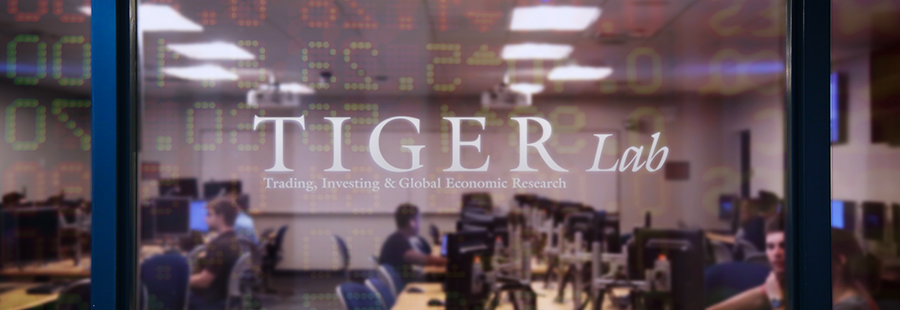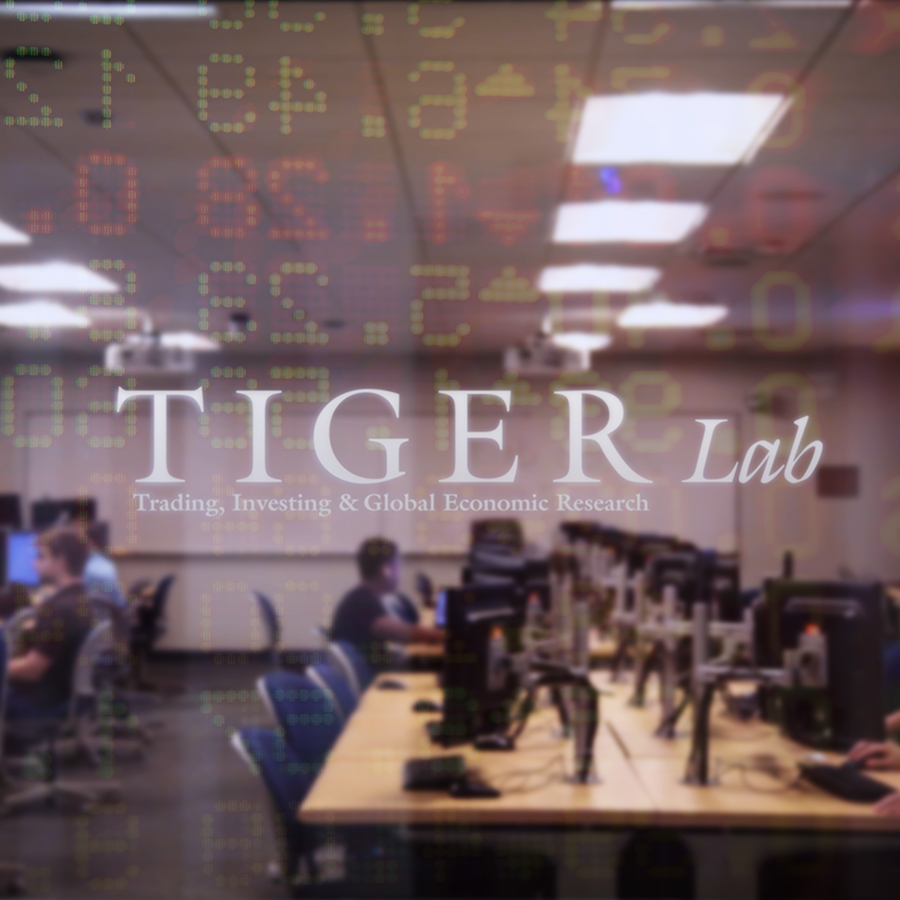
“We aren’t turning into a global marketplace—we have been one,” says Auburn Student Investment Fund (ASIF) vice president Jimmy Brewster. The junior in finance from Atlanta is one of 26 students in the Harbert College-sponsored organization that buys and sells stocks, bonds, and fixed-income investments. Last year alone, ASIF turned $250,000 into $300,000. This isn’t Monopoly money, folks. This is the real thing.
Founded in 2017, the ASIF portfolio consists of equities, ETFs, and fixed-income investments selected by students, with oversight by faculty representatives and associate professors in finance Jitka Hilliard and Albert Wang, and Cheryl Casey, Vice Chair of the Auburn Foundation Investment Committee, who earned a degree in international business from Auburn in 1983.
ASIF team members research potential stocks in seven sectors—technology, industrials, consumer products, health care, real estate, financials, and energy. Potential investments are analyzed—quantitatively and qualitatively—financial models are created, and PowerPoint presentations are made to advisors before a decision to invest rendered.
“We have a diverse portfolio,” says ASIF President Kate Bagley, a senior in finance from Houston, Texas. “We don’t take as many risks. We prefer larger market cap stocks for long-term, steady growth.”
Bagley, who has already enjoyed internships at Morgan Stanley and Wells Fargo, says the fund was designed to enhance students’ professional development as well as their technical skills “that will translate into getting the internship or job that they really want.”
Brewster adds, “It’s a unique environment where you provide students the opportunity to get this professional experience and manage a significant amount of moneys. Not only are you getting the professional experience, but it’s educational, and hopefully will bring profit to the university.”
The club’s inner circle often check the markets first thing in the morning rather than the previous night’s sports scores or headline news—but headline news worldwide (global tensions, oil production and distribution, tariffs, Brexit, etc.) have a great impact on the markets.
“US stocks are going to be impacted by all sorts of things in the world,” Brewster says. “From an investor’s perspective, we are often looking to recognize how those are affecting fundamental valuations other than stock price fluctuations.
“The tariffs with China are a hot topic,” Brewster says. “One of the biggest effects it’s had is an overall systematic risk in the marketplace. Investors are super-worried that the economy is going to crash soon, and the stress from China is just pushing that further. We were worried about systematic risk and the risk of the economy going down, in general, so we allocated more to fixed income and debt.”
Co-Vice President Ty Lamar, a junior in finance from Boise, Idaho, acknowledges that student groups are wary of investing in foreign markets—and anyone without a complete understanding of those markets might want to consider steering clear.
“Instead of us going out trying to go out and toss darts in the UK or China, we’ve been very disciplined at sticking to what we know,” says Lamar, who began dabbling in the stock market when he was a high-schooler. “The trouble is that a lot of people are chasing high returns, or even decent returns, in a very low-yielding environment. That’s when people get into trouble.
“I think a lot of people will look at something like a trade war with China and they will try to trade based off of that news. Or say that the market is at a bad place because something is going on here . . . There are always events occurring that are positive or negative.”

